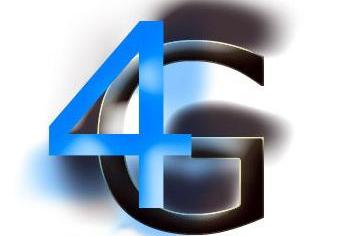US’ LightSquared Pushes For Quick 4G Decision

LightSquared has asked regulators to give it the go-ahead for a 4G rollout in the US, despite GPS interference issues
LightSquared, an American 4G startup, has petitioned the Federal Communications Commission (FCC) to deliver a ruling by the end of this month that would clear the way for its rollout of Long Term Evolution (LTE) services in the US, according to reports.
The company needs FCC approval before the end of 2011 under a deal with carrier Sprint Nextel, which wants to roll out LTE services based on LightSquared’s network. LightSquared also has deals with Best Buy and Leap Wireless International to supply them with 4G infrastructure.
Interference
However, makers of GPS systems are arguing that LightSquared should be obliged to make changes to its LTE infrastructure, which studies have predicted will cause serious interference with the majority of American GPS systems.

LightSquared is one of several providers rolling out 4G services in the US. 4G is a generic term that includes mobile broadband technologies such as WiMax and LTE. LightSquared wants to build an LTE network covering 260 million people by 2016 and to sell capacity wholesale to service providers, as do Verizon and Clearwire.
In a filing with the FCC on Tuesday LightSquared argued that GPS equipment makers have had an opportunity to retrofit their devices to avoid interference, and that LightSquared itself has no obligation to pay for changes.
“It recently has become apparent that the commercial GPS industry has manufactured, and sold to unsuspecting customers, unlicensed and poorly designed GPS receivers,” LightSquared said in the filing.
The company has, however, already agreed to use only a portion of its spectrum and to lower the power of its cell towers to mitigate GPS interference.
Deadline
The agreement with Sprint is due to expire at the end of 2011, but the companies have the option to extend it, a Sprint spokesman told the Wall Street Journal.
“Both Sprint and LightSquared are pulling back on expenses and will stop new deployment design and implementation for LightSquared on the Sprint network,” said Sprint spokesman Bill White.
Earlier in December US federal departments including the Department of Transportation and the National Coordination Office for Space-Based Positioning, Navigation and Timing said that their tests revealed that LightSquared’s network would interfere with a “majority” of GPS devices, according to the Journal’s report.
Other reports have said the network would interfere with up to 75 percent of GPS receivers.
In addition, LightSquared’s principal financial backer, the hedge fund Harbinger Capital Partners, is facing a fraud investigation by the Securities and Exchange Commission.
LightSquared is one of several companies pushing ahead with rollouts of mobile broadband in the US. Of the four major carriers in the United States (Verizon, AT&T, Sprint and T-Mobile), Sprint was the first to offer 4G, via Clearwire’s WiMax technology, and during its most recent quarter, the Samsung Epic 4G and HTC Evo 4G – two phones that can take advantage of 4G speeds – helped it to achieve one of the best churn rates in its history, as well as its best total wireless subscriber additions since 2006.
UK 4G delays
Verizon made its 4G/LTE network available to customers this month.
LTE has also been launched in Germany, Japan and emerging markets such as Uzbekistan, while France’s auctions 4G spectrum auctions are currently underway.
Meanwhile, next-generation mobile networks may not be “widely available” in the UK for another four years, according to telecoms regulator Ofcom, as the auction of the needed radio spectrum continues to face delays.